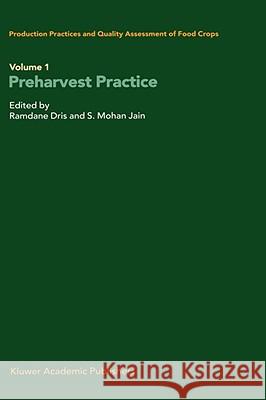Production Practices and Quality Assessment of Food Crops: Volume 1 Preharvest Practice » książka
Production Practices and Quality Assessment of Food Crops: Volume 1 Preharvest Practice
ISBN-13: 9781402016981 / Angielski / Twarda / 2004 / 286 str.
Today, in a world with abundant food, more than 700 million people are chro- cally undernourished. Over the next 20 years, the world s population will probably double. The global food supply would need to double or to triple for the larger population to be fed adequately. Agriculture is closely linked to environmental quality in a variety of ways, and the challenge of our generation is how to feed a growing planet while maintaining the integrity of our ecological life-support system. The responsibility of governments for ensuring food security will grow proportionately with the growth of populations, and governments bear a special responsibility for promoting agricultural inputs. Agriculture in the 21st century, will certainly focus increasingly on adapting modern technologies to local farming systems, needs and environments. Worldwide climatic changes have been raising concerns about potential changes to crop yields and production systems. Such concerns include the ability to acc- modate these uncertain effects in order to ensure an adequate food supply for an increasing population. What can be done concretely to use agriculture to address some of the fundamental issues of today s world? We must recognize that agric- ture is part of the solution and not just a problem. Agricultural development is a key to social stability and equity in many parts of the world. It can help to al- viate the subtle and unspoken fears of modernization and the space of change if innovation is handled transparently."











